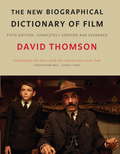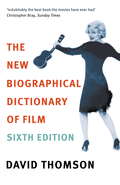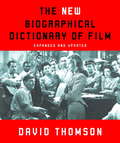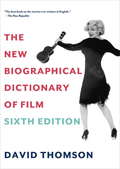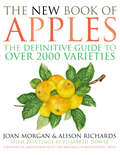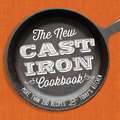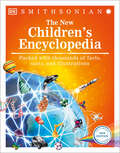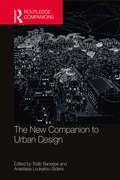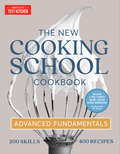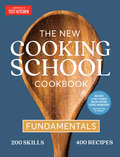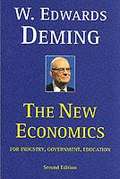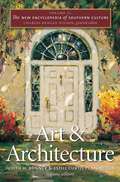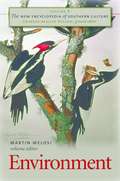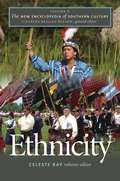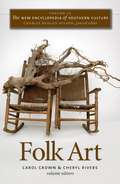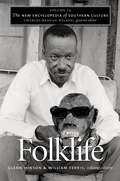- Table View
- List View
The New B.C. Roadside Naturalist
by Richard Cannings Sydney CanningsIn this fascinating guide to the roadside ecology of the major highways in B.C., you'll discover a whole new dimension to taking a car trip. This new edition has been updated and expanded to cover northern British Columbia and southern Yukon, giving readers a unique perspective on the northern wildlife and vegetation. Southern travellers "may find that this journey will redefine what 'northern British Columbia' means to them, or even what 'north' means."Sidebars tell stories about various species, such as the huge, endangered sturgeon and the Great Basin spadefoot toad, which spends most of the year underground. Full-colour photographs and black-and-white drawings illustrate numerous plants and animals that make their homes along the roadsides of British Columbia, and maps show the route of each highway discussed. In addition, the book offers suggestions for where to stop and look for crayfish, enjoy a swim in summer, or have a picnic lunch during your travels. An appendix provides a brief field guide of tree silhouettes and hints for identifying trees and shrubs.Whether you're taking a day trip or a two-week holiday, your drive along the highways of B.C. will be enriched by the storehouse of information in this facinating and informative guide.
The New Beauty Secrets
by Laura MercierLaura Mercier's philosophy is simple. A perfect face -- radiant, flawless, and soft -- is the first and most important step in achieving your best possible look. For years Laura has been transforming celebrities such as Sarah Jessica Parker, Julia Roberts, and Mariah Carey with her hallmark Flawless Face method. Her signature product line, Laura Mercier Cosmetics, is an international success, and her editorial work frequents the covers of the most chic fashion magazines. Her products are loved by everyone from makeup artists to real women, people who appreciate straightforward products that deliver what they promise. Now, for the tenth anniversary of Laura Mercier Cosmetics, Laura's handing her time-tested tricks over to you. The New Beauty Secrets presents the techniques that she's mastered and honed through an extraordinary life in beauty in a simple, professional manner. Alongside Laura's easy-to-follow, step-by-step advice you'll find the straight beauty talk that has made her the trusted confidant of so many. Whether she's exploring the pros and cons of plastic surgery, divulging the secrets of perfect lip liner, or sharing her recipe for the most relaxing bath, Laura's warm, expert voice welcomes you into her world -- a world brought to life with personal snapshots, elegant sketches, and glamorous photographs of renowned beauties wearing makeup by Laura. Read along as Sharon Stone, Julianne Moore, and others reveal what makes Laura such a genius. The New Beauty Secrets is the ultimate handbook for every woman who loves makeup and wants to look her best. In The New Beauty Secrets you will learn how to: Streamline your skincare routine to get the best complexion Replicate the Flawless Face Method that Laura uses on her celebrity clients Find the eyeshadow hues that best complement your eye color Prevent your lipstick from feathering, bleeding, or fading Design an eyebrow shape that's perfect for your face Indulge in at-home beauty treatments that will help you glow, de-stress, and detox
The New Beginnings Bridal Boutique: The sparkling new uplifting romance about love and second chances
by Kellie Hailes'You know for an owner of a bridal shop you're awfully cynical about marriage.'As the owner of a second-hand bridal boutique in the little village of Alfriston, Paige Alby has seen too many tear-stained owners bring in wedding dresses that signal collapsed dreams to believe in happily ever after. So being the maid of honour at her mother's fourth wedding isn't exactly something she's looking forward to... Nor is the prospect of working with Cy, her mother's admittedly handsome but far too forward wedding planner.Cy Thorpe has spent the last few years building a wedding empire in London catering to the rich and famous. On a trip home to see his family, he takes on a small private wedding on a whim. The last thing he expected to find was love, but the more time he spends with Paige, the more he sees past her defences to the woman who has dedicated her life to saving the things others have neglected. The hopeless romantic to Paige's sworn cynic, can Cy get Paige to give him and happily ever after a chance?A warm and uplifting romance, The New Beginnings Bridal Boutique is perfect for fans of Jessica Redland, Tilly Tennant and Donna Ashcroft. Readers are loving The New Beginnings Bridal Boutique!'This book is all about what happens when a great romantic meets a love cynic.... A very emotional journey that is a delight to read' Vicky, NetGalley reviewer'I absolutely adored this so much , I found once I picked it up I couldn't put it down' Tara, NetGalley reviewer'Such a delightful, heartwarming read. A story of hope, you can't help but believe in love' Emma, NetGalley reviewer'I really enjoyed this book, it was a quick, easy and fun read that I could not put down. It was well written, heart-warming and had me smiling with nearly every page' Kirsty, NetGalley reviewer
The New Beginnings Bridal Boutique: The sparkling new uplifting romance about love and second chances
by Kellie Hailes'You know for an owner of a bridal shop you're awfully cynical about marriage.'As the owner of a second-hand bridal boutique in the little village of Alfriston, Paige Alby has seen too many tear-stained owners bring in wedding dresses that signal collapsed dreams to believe in happily ever after. So being the maid of honour at her mother's fourth wedding isn't exactly something she's looking forward to... Nor is the prospect of working with Cy, her mother's admittedly handsome but far too forward wedding planner.Cy Thorpe has spent the last few years building a wedding empire in London catering to the rich and famous. On a trip home to see his family, he takes on a small private wedding on a whim. The last thing he expected to find was love, but the more time he spends with Paige, the more he sees past her defences to the woman who has dedicated her life to saving the things others have neglected. The hopeless romantic to Paige's sworn cynic, can Cy get Paige to give him and happily ever after a chance?A warm and uplifting romance, The New Beginnings Bridal Boutique is perfect for fans of Jessica Redland, Tilly Tennant and Donna Ashcroft. Readers are loving The New Beginnings Bridal Boutique!'This book is all about what happens when a great romantic meets a love cynic.... A very emotional journey that is a delight to read' Vicky, NetGalley reviewer'I absolutely adored this so much , I found once I picked it up I couldn't put it down' Tara, NetGalley reviewer'Such a delightful, heartwarming read. A story of hope, you can't help but believe in love' Emma, NetGalley reviewer'I really enjoyed this book, it was a quick, easy and fun read that I could not put down. It was well written, heart-warming and had me smiling with nearly every page' Kirsty, NetGalley reviewer
The New Biographical Dictionary Of Film 5Th Ed
by David ThomsonThis book is both more and less than history, a work of imagination in its own right, a piece of movie literature that turns fact into romance.' Gavin Lambert was reviewing the first edition of David Thomson's monumental work in 1975. In the eight years since the third edition was published, careers have waxed and waned, reputations been made and lost, great movies produced, trends set and scorned.This fourth edition has 200 entirely new entries and every original entry has been re-examined. Thus the roster of directors, actors, producers, screenwriters and cameramen is both historical and contemporary, with old masters reappraised in terms of how their work has lasted.Each of the 1,000 profiles is a keenly perceptive, provocative critical essay. Striking the perfect balance between personal bias and factual reliability, David Thomson - novelist, critic, biographer and unabashed film addict - has given us an enormously rich reference book, a brilliant reflection on the art and artists of the cinema.
The New Biographical Dictionary Of Film 6th Edition
by David ThomsonWith more than one hundred new entries, from Amy Adams, Benedict Cumberbatch and Cary Joji Fukunaga to Joaquin Phoenix, Mia Wasikowska and Robin Wright, and completely updated, here from David Thomson - 'The greatest living writer on the movies' (John Banville, New Statesman); 'Our most argumentative and trustworthy historian of the screen' (Michael Ondaatje) - is the latest edition of The New Biographical Dictionary of Film, which topped Sight & Sound's poll of international critics and writers as THE BEST FILM BOOK EVER WRITTEN.
The New Biographical Dictionary of Film
by David Thomson'This book is both more and less than history, a work of imagination in its own right, a piece of movie literature that turns fact into romance. ' Gavin Lambert was reviewing the first edition of David Thomson's monumental work in 1975. In the eight years since the third edition was published, careers have waxed and waned, reputations been made and lost, great movies produced, trends set and scorned. This fourth edition has 200 entirely new entries and every original entry has been re-examined. Thus the roster of directors, actors, producers, screenwriters and camera men is both historical and contemporary, with old masters reappraised in terms of how their work has lasted. Each of the 1,000 profiles is keenly perceptive, provocative critical essay. Striking the perfect balance between personal bias and factual reliability, David Thomson - novelist, critic, biographer and unabashed film addict - has given us an enormously rich reference book, a brilliant reflection on the art and artists of the cinema.
The New Biographical Dictionary of Film: Sixth Edition
by David ThomsonFor almost thirty years, David Thomson's Biographical Dictionary of Film has been not merely "the finest reference book ever written about movies" (Graham Fuller, Interview), not merely the "desert island book" of art critic David Sylvester, not merely "a great, crazy masterpiece" (Geoff Dyer, The Guardian), but also "fiendishly seductive" (Greil Marcus, Rolling Stone).This new edition updates the older entries and adds 30 new ones: Darren Aronofsky, Emmanuelle Beart, Jerry Bruckheimer, Larry Clark, Jennifer Connelly, Chris Cooper, Sofia Coppola, Alfonso Cuaron, Richard Curtis, Sir Richard Eyre, Sir Michael Gambon, Christopher Guest, Alejandro Gonzalez Inarritu, Spike Jonze, Wong Kar-Wai, Laura Linney, Tobey Maguire, Michael Moore, Samantha Morton, Mike Myers, Christopher Nolan, Dennis Price, Adam Sandler, Kevin Smith, Kiefer Sutherland, Charlize Theron, Larry Wachowski and Andy Wachowski, Lew Wasserman, Naomi Watts, and Ray Winstone.In all, the book includes more than 1300 entries, some of them just a pungent paragraph, some of them several thousand words long. In addition to the new "musts," Thomson has added key figures from film history-lively anatomies of Graham Greene, Eddie Cantor, Pauline Kael, Abbott and Costello, Noël Coward, Hoagy Carmichael, Dorothy Gish, Rin Tin Tin, and more. Here is a great, rare book, one that encompasses the chaos of art, entertainment, money, vulgarity, and nonsense that we call the movies. Personal, opinionated, funny, daring, provocative, and passionate, it is the one book that every filmmaker and film buff must own. Time Out named it one of the ten best books of the 1990s. Gavin Lambert recognized it as "a work of imagination in its own right." Now better than ever-a masterwork by the man playwright David Hare called "the most stimulating and thoughtful film critic now writing."
The New Book of Apples
by Joan MorganThis extraordinary book contains in one unique volume, the most wide-ranging history of apples ever written and a detailed survey of over 2,000 of the world's apple varieties. Beautifully illustrated with 32 exquisite colour paintings, the last edition of this book received many accolades and was quickly recognised as a classic. Complete with a fully revised directory covering all the varieties of apple to be found in the world's largest apple collection, The New Book of Apples includes full historical, geographical and botanical details as well as tasting notes on each type of apple. Exploring the role of apples in cooking, cider making, gardening, myth and medicine, this is an indispensable reference guide.
The New Book of Wedding Etiquette
by Kim ShawModern-Day Weddings with Grace and Style Wedding ceremonies are still about love and romance, a special moment that creates a beautiful and everlasting union. But not everything related to weddings stays the same over the years. Etiquette evolves, rules change. And who can keep up with all of today's complicated family issues? With the help of this book, you can stay on top of it all and learn how to combine timeless wedding traditions with the latest trends and social styles. Inside, you'll discover the secrets of having a beautiful, contemporary event full of fabulous elegance while at the same time satisfying the varied needs of friends and family. Included are etiquette tips and hints foreverystep of the planning process and answers to today's trickiest wedding situations, including: ·How to handle unique family situations ·Who pays for each aspect of the wedding ·When the bride has a best man and the groom has a maid of honor ·And much, much more! You'll also find answers to frequently asked questions, do's & don'ts, and personal reflections, plus ideas for traditional and nontraditional weddings. This modern-day etiquette companion is the perfect wedding-planning partner. Now, you can relax and enjoy preparing for your special day! "An outstanding resource for anyone planning a wedding! Shaw's advice is concise, on target, in good taste, and always full of dry humor. " —Carolyn Shepard-Baehre,AIFD, president, Carolyn Shepard Design Group
The New Cast-Iron Cookbook: More Than 200 Recipes for Today's Kitchen
by Media AdamsA modern twist on classic cast-iron recipes!Forget grandma's cast-iron recipes--with The New Cast-Iron Cookbook, you'll whip up hundreds of modern, mouthwatering plates that will leave your dinner guests in awe. Featuring more than 200 recipes for the world's most indestructible skillet, you'll learn how easy it is to create delicious dishes from scratch and finally ditch that nonstick pan. Featuring step-by-step instructions and gorgeous photographs, each page shows you how to craft artisan meals like:Stuffed Vienna Bread French ToastLeek, Mushroom, and Goat Cheese QuesadillaQuinoa and Beef-Stuffed Acorn SquashPan-Seared Scallops and ChorizoUpside-Down Apple PieComplete with advice on caring for your new cast-iron skillet, this cookbook takes what once was old and makes it new again with tasty recipes you won't be able to resist!
The New Children's Encyclopedia: Packed with thousands of facts, stats, and illustrations
by DKQuench your thirst for knowledge with this comprehensive visual encyclopedia. Packed with pictures and full of facts, this brilliant bestseller is an essential addition to any family library. How did Earth get here? Why does the Sun shine? How does my body work? Why are other countries different? If your head is bursting with questions, you&’ll discover all the answers and much, much more inside. With thematic chapters on Earth, space, natural world, science, technology, and the human body, there is no end to your learning experience. Stunning photography, maps, charts, timelines, diagrams, and invaluable input from experts combine in this exciting landmark reference. Easy navigation enables young readers to dip in and out or read from cover to cover. Clever cross-referencing encourages children to link information, expand their knowledge, and broaden their horizons. The New Children's Encyclopedia takes you on an epic journey of discovery through more than 9,000 indexed entries and 2,500 breathtaking images. With more than a million copies sold already, isn&’t it time you got yours?
The New Companion to Urban Design
by Tridib Banerjee Anastasia Loukaitou-SiderisThe New Companion to Urban Design continues the assemblage of rich and critical ideas about urban form and design that began with the Companion to Urban Design (Routledge, 2011). With chapters from a new set of contributors, this sequel offers a more comparative perspective representing multiple voices and perspectives from the Global South. The essays in this volume are organized in three parts: Part I: Comparative Urbanism; Part II: Challenges; and Part III: Opportunities. Each part contains distinct sections designed to address specific themes, and includes a list of annotated suggested further readings at the end of each chapter. Part I: Comparative Urbanism examines different variants of urbanism in the Global North and the Global South, produced by a new economic order characterized by the mobility of labor, capital, information, and technology. Part II: Challenges discusses some of the contemporary challenges that cities of the Global North and the Global South are facing and the possible role of urban design. This part discusses spatial claims and conflicts, challenges generated by urban informality, explosive growth or dramatic shrinkage of the urban settlement, gentrification and displacement, and mimesis, simulacra and lack of authenticity. Part III: Aspirations discusses some normative goals that urban design interventions aspire to bring about in cities of the Global North and the Global South. These include resilience and sustainability, health, conservation/restoration, justice, intelligence, access and mobility, and arts and culture. The New Companion to Urban Design is primarily intended for scholars and graduate students interested in cities and their built environment. It offers an invaluable and up-to-date guide to current thinking across a range of disciplines including urban design, planning, urban studies, and geography.
The New Cooking School Cookbook: Advanced Fundamentals
by America's Test KitchenAttend your personal culinary grad school and learn to cook your best, with 100 advanced courses full of 400+ recipes and new-school techniques given by 20 expert test-kitchen instructors.Finally, a cookbook written for confident home cooks ready to explore new territory and learn by cooking spectacular recipes. Travel beyond the basics into 100 engaging themed courses such as Stuffed Pasta, Pho, Grilled Salad, Koji Magic, and Soufflés. Enhance your skills and satisfy your curiosity by whipping up creamy ice cream and gelato, frying crunchy chicken, rolling out and shaping gnocchi (and gnudi) with ease, fermenting vegetables, and perfecting pastry cream to fill choux au craquelin, Boston cream pie, and bolo bao. Within the course structure, recipes are supplemented by illustrated core techniques, food science sidebars, and infographic resource pages packed with valuable behind-the-recipe information. You will confidently learn to: • make your own cheese• be your own butcher• fearlessly fry • bake challah, baguettes, and croissants• put the icing on all kinds of cakes.
The New Cooking School Cookbook: Fundamentals
by America's Test KitchenGreat cooks never stop learning. Go to cooking school in your own kitchen with over 80 themed courses to learn more than 200 skills and cook 400 recipesThis all-new exploration of the fundamentals of cooking is perfect for anyone (from brand-new to experienced cooks) who wants to learn not just the &“hows&” but also the &“whys&” of cooking. Why does pizza bake better on a stone? Why do mushrooms benefit from water when sautéing? Why should you salt food at multiple stages during the cooking process? More than 80 focused courses let you dive into your favorite topics, whether it's Pizza, Fried Rice, Fish on the Grill, or Birthday Cake, and take a mini-bootcamp on the subject, each introduced by an ATK test cook. The courses are presented in easily digestible sections so you don't have to read a lot before you pick up your knife and start cooking. Cooking principles, technique, key takeaways, food science, and more are woven into each course so you learn as you cook. Jump into a class on Fresh Italian Pasta to learn how to: • make fresh pasta from scratch without a machine• cut fettucine and make Fettucine Alfredo• make a classic marinara sauce and basil pesto Infographic pages take you farther behind recipes and ingredients: See how olive oil is really produced, or how temperature affects the state of butter (and why firm, soft, and melted butter behave differently in cooking). Every chapter progresses from the basics of the best way to poach a perfect egg and make chicken broth to upping your game with huevos rancheros and mastering the elusive roast chicken. If you want to feel accomplished and really know how to cook, come learn with America's Test Kitchen.
The New Crochet: A Beginner's Guide, with 38 Modern Projects
by Marion MadelA fresh, upscale approach to crochet, with 38 simple projects presented in 25 comprehensive yet easy-to-understand lessons for anyone just picking up this craft.Crochet gets a chic makeover in this beginner-friendly book from French designer and crochet teacher Marion Madel. The 38 quick and easy projects include oversized scarves, cozy cowls, lacy shawls, decorative embellishments, bags, and much more. In 25 lessons, beginners will steadily build their repetoire of crochet skills, each one presented in detailed step-by-step photos, from creating foundation chains to decreasing and increasting stitches to crocheting in the round. For each lesson, the accompanying patterns offer the chance to try out new stitch patterns and techniques while creating a collection of beautiful garments and accessories that go far beyond typical "beginner's" projects.
The New Ecological Home
by Daniel D. ChirasToday, a new generation of architects and builders is emerging, intent on creating homes that meet human needs for shelter while causing only a fraction of the environmental impact of conventional housing. "The New Ecological Home" provides an overview of green building techniques, materials, products, and technologies that are either currently available or will be in the near future. Author Daniel Chiras provides a wealth of up-to-date, practical information for home buyers, owner-builders, and anyone interested in building for a sustainable future. Included are chapters on: - The Healthy House - Green Building Materials - Wood-Wise Construction - Energy Efficiency - Earth-Sheltered Architecture - Passive Solar Heating and Passive Cooling - Green Power: Electricity from the Sun and Wind - Water and Waste: Sustainable Approaches - Environmental Landscaping
The New Economics For Industry, Government, Education
by W. Edwards DemingIn this book W. Edwards Deming details the system of transformation that underlies the 14 Points for Management presented in Out of the Crisis. The system of profound knowledge, as it is called, consists of four parts: appreciation for a system, knowledge about variation, theory of knowledge, and psychology. Describing prevailing management style as a prison, Deming shows how a style based on cooperation rather than competition can help people develop joy in work and learning at the same time that it brings about long-term success in the market. Indicative of Deming's philosophy is his advice to abolish performance reviews on the job and grades in school.
The New Email Revolution: Save Time, Make Money, and Write Emails People Actually Want to Read!
by Robert W. BlyPractices, strategies, and templates for optimizing your email use. The average business employee spends more than thirteen hours a week reading and responding to email. That’s 675 or more hours—over 28 days a year—spent on email. Wouldn’t it be nice to get some of that time back? In The New Email Revolution, Robert W. Bly Bly draws from decades of experience sending millions of emails to help you take that time back. With this book in hand, you will be able to quickly and easily: •Find templates you can use to create emails for dozens of different situations. •Know the right wording and optimal word length for email communication. •Get recipients to read and respond to your email messages. •Understand when it is legal and not legal to send email to a person you do not know. •Incorporate photos, graphics, sound, and video into your email messages. •Measure the deliverability, bounce rate, open rate, and response rate to every email you send. •Write clearer, more engaging, more persuasive email copy for every occasion. Get better results in less time with The New Email Revolution.
The New Encyclopedia of Southern Culture: Agriculture and Industry
by Melissa Walker James C. CobbVolume 11 of The New Encyclopedia of Southern Culture examines the economic culture of the South by pairing two categories that account for the ways many southerners have made their living. In the antebellum period, the wealth of southern whites came largely from agriculture that relied on the forced labor of enslaved blacks. After Reconstruction, the South became attractive to new industries lured by the region's ongoing commitment to low-wage labor and management-friendly economic policies. Throughout the volume, articles reflect the breadth and variety of southern life, paying particular attention to the region's profound economic transformation in recent decades. The agricultural section consists of 25 thematic entries that explore issues such as Native American agricultural practices, plantations, and sustainable agriculture. Thirty-eight shorter pieces cover key crops of the region--from tobacco to Christmas trees--as well as issues of historic and emerging interest--from insects and insecticides to migrant labor. The section on industry and commerce contains 13 thematic entries in which contributors address topics such as the economic impact of military bases, resistance to industrialization, and black business. Thirty-six topical entries explore particular industries, such as textiles, timber, automobiles, and banking, as well as individuals--including Henry W. Grady and Sam M. Walton--whose ideas and enterprises have helped shape the modern South.
The New Encyclopedia of Southern Culture: Art and Architecture
by Charles Reagan Wilson Estill Curtis Pennington Judith H. BonnerFrom the Potomac to the Gulf, artists were creating in the South even before it was recognized as a region. The South has contributed to America's cultural heritage with works as diverse as Benjamin Henry Latrobe's architectural plans for the nation's Capitol, the wares of the Newcomb Pottery, and Richard Clague's tonalist Louisiana bayou scenes. This comprehensive volume shows how, through the decades and centuries, the art of the South expanded from mimetic portraiture to sophisticated responses to national and international movements. The essays treat historic and current trends in the visual arts and architecture, major collections and institutions, and biographies of artists themselves. As leading experts on the region's artists and their work, editors Judith H. Bonner and Estill Curtis Pennington frame the volume's contributions with insightful overview essays on the visual arts and architecture in the American South.
The New Encyclopedia of Southern Culture: Environment
by Martin MelosiFrom semitropical coastal areas to high mountain terrain, from swampy lowlands to modern cities, the environment holds a fundamental importance in shaping the character of the American South. This volume of The New Encyclopedia of Southern Culture surveys the dynamic environmental forces that have shaped human culture in the region--and the ways humans have shaped their environment. Articles examine how the South's ecology, physiography, and climate have influenced southerners--not only as a daily fact of life but also as a metaphor for understanding culture and identity. This volume includes ninety-eight essays that explore--both broadly and specifically--elements of the southern environment. Thematic overviews address subjects such as plants, animals, energy use and development, and natural disasters. Shorter topical entries feature familiar species such as the alligator, the ivory-billed woodpecker, kudzu, and the mockingbird. Also covered are important individuals in southern environmental history and prominent places in the landscape, such as the South's national parks and seashores. New articles cover contemporary issues in land use and conservation, environmental protection, and the current status of the flora and fauna widely associated with the South.
The New Encyclopedia of Southern Culture: Ethnicity
by Celeste RayTranscending familiar categories of "black" and "white," this volume of The New Encyclopedia of Southern Culture complicates and enriches our understanding of "southernness" by identifying the array of cultures that combined to shape the South. This exploration of southern ethnicities examines the ways people perform and maintain cultural identities through folklore, religious faith, dress, music, speech, cooking, and transgenerational tradition.Accessibly written and informed by the most recent research that recovers the ethnic diversity of the early South and documents the more recent arrival of new cultural groups, this volume greatly expands upon the modest Ethnic Life section of the original Encyclopedia. Contributors describe 88 ethnic groups that have lived in the South from the Mississippian Period (1000-1600) to the present. They include 34 American Indian groups, as well as the many communities with European, African, and Asian cultural ties that came to the region after 1600. Southerners from all backgrounds are likely to find themselves represented here.
The New Encyclopedia of Southern Culture: Folk Art
by Charles Reagan Wilson Carol Crown Cheryl RiversFolk art is one of the American South's most significant areas of creative achievement, and this comprehensive yet accessible reference details that achievement from the sixteenth century through the present. This volume of The New Encyclopedia of Southern Culture explores the many forms of aesthetic expression that have characterized southern folk art, including the work of self-taught artists, as well as the South's complex relationship to national patterns of folk art collecting. Fifty-two thematic essays examine subjects ranging from colonial portraiture, Moravian material culture, and southern folk pottery to the South's rich quilt-making traditions, memory painting, and African American vernacular art, and 211 topical essays include profiles of major folk and self-taught artists in the region.
The New Encyclopedia of Southern Culture: Folklife
by William Ferris Glenn HinsonSouthern folklife is the heart of southern culture. Looking at traditional practices still carried on today as well as at aspects of folklife that are dynamic and emergent, contributors to this volume of The New Encyclopedia of Southern Culture examine a broad range of folk traditions. Moving beyond the traditional view of folklore that situates it in historical practice and narrowly defined genres, entries in this volume demonstrate how folklife remains a vital part of communities' self-definitions. Fifty thematic entries address subjects such as car culture, funerals, hip-hop, and powwows. In 56 topical entries, contributors focus on more specific elements of folklife, such as roadside memorials, collegiate stepping, quinceanera celebrations, New Orleans marching bands, and hunting dogs. Together, the entries demonstrate that southern folklife is dynamically alive and everywhere around us, giving meaning to the everyday unfolding of community life.



